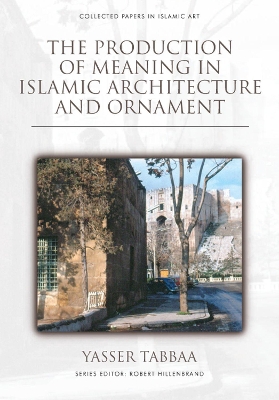Collected Papers in Islamic Art
1 total work
The Production of Meaning in Islamic Architecture and Ornament
by Yasser Tabbaa
Published 1 November 2021
This volume collects Yasser Tabbaa's investigative and interpretive articles on medieval Islamic architecture, ornament and gardens in Syria and Iraq, with comparative expansions into Anatolia, Egypt, North Africa and Spain. The monuments in question, many of which have vanished in recent years, are examined within the context of the political divisions and theological ruptures that characterised the Islamic world between the 11th and 13th centuries. The writings cover such significant forms as muqarnas vaulting, proportioned Qur'anic scripts and cursive public inscriptions, and monument types such as the madrasa, the hospital, the tribunal (dar al-'adl) and the citadel palace. Collectively, they present medieval Islamic architecture as a transformative process that echoes Abbasid glory and signals future developments in later Islamic architecture.
